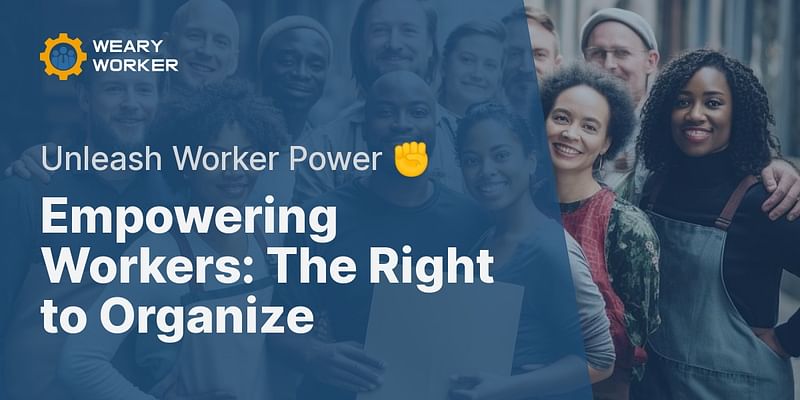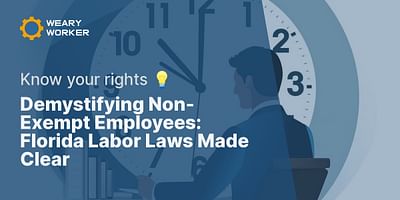Oliver Davis is a workplace safety expert with a background in occupational health. He's dedicated to helping workers understand their rights and stay safe on the job. Oliver hails from Illinois and is a fan of the Bears.
The right for workers to organize is a fundamental aspect of a democratic society and a thriving economy. This right empowers employees to negotiate for better working conditions, fair wages, and other benefits. It is a crucial element that underpins workers' rights and contributes to a more equitable workplace.
Let's Unpack the Power of Collective Bargaining 🤝
At the core of the right to organize is the concept of collective bargaining. This is the process where workers come together to negotiate with their employers on various aspects of their work, from wages and hours to safety practices and benefits. It's a tool that levels the playing field between employees and employers, providing a platform for workers to voice their concerns and advocate for their rights.
When workers organize, they are better equipped to negotiate for fairer wages and benefits. This is one of the most significant benefits of labor unions. Employees who are part of a union typically earn higher wages than their non-union counterparts, and they are more likely to have access to health care and retirement benefits.
How Unions Champion Workplace Safety 🔒
Another key advantage of joining a trade union is the role it plays in promoting and maintaining workplace safety. Unions often push for stringent safety measures, proper equipment, and training programs to protect workers from potential hazards. This not only helps to prevent accidents but also fosters a safer and healthier work environment.
Giving Workers a Megaphone: The Union's Role 📣
Unions provide workers with a collective voice, allowing them to express their concerns and grievances without fear of retaliation. This is particularly important in industries where workers may be vulnerable to exploitation or mistreatment. The right to organize ensures that these voices are heard and that their concerns are addressed.
Quiz about the importance of labor unions
Test your understanding of the importance of labor unions and the rights of workers to organize.
Learn more about Quiz: Importance of Labor Unions ✏️ or discover other Weary Worker quizzes.
Beyond the Workplace: The Economic Ripple Effect 💰
Aside from the direct benefits to workers, the right to organize can also have broader economic implications. When workers earn fair wages, they have more disposable income to spend, stimulating economic growth. Additionally, unions often advocate for policies that benefit all workers, such as minimum wage laws and paid sick leave, contributing to a more robust and equitable economy.
Employers, Take Note: The Upside of Unions 👥
While unions are often seen as serving the interests of workers, they can also bring benefits for employers. A unionized workforce can lead to lower turnover rates, as employees tend to stay with a company where they feel their rights are respected and their voices heard. This can result in lower recruitment and training costs for the company.
In conclusion, the right for workers to organize is not just about protecting individual workers; it's about creating a fairer and more balanced workplace. It's about ensuring that the benefits of economic growth are shared more equitably. And it's about fostering a culture of respect and dignity in the world of work.















